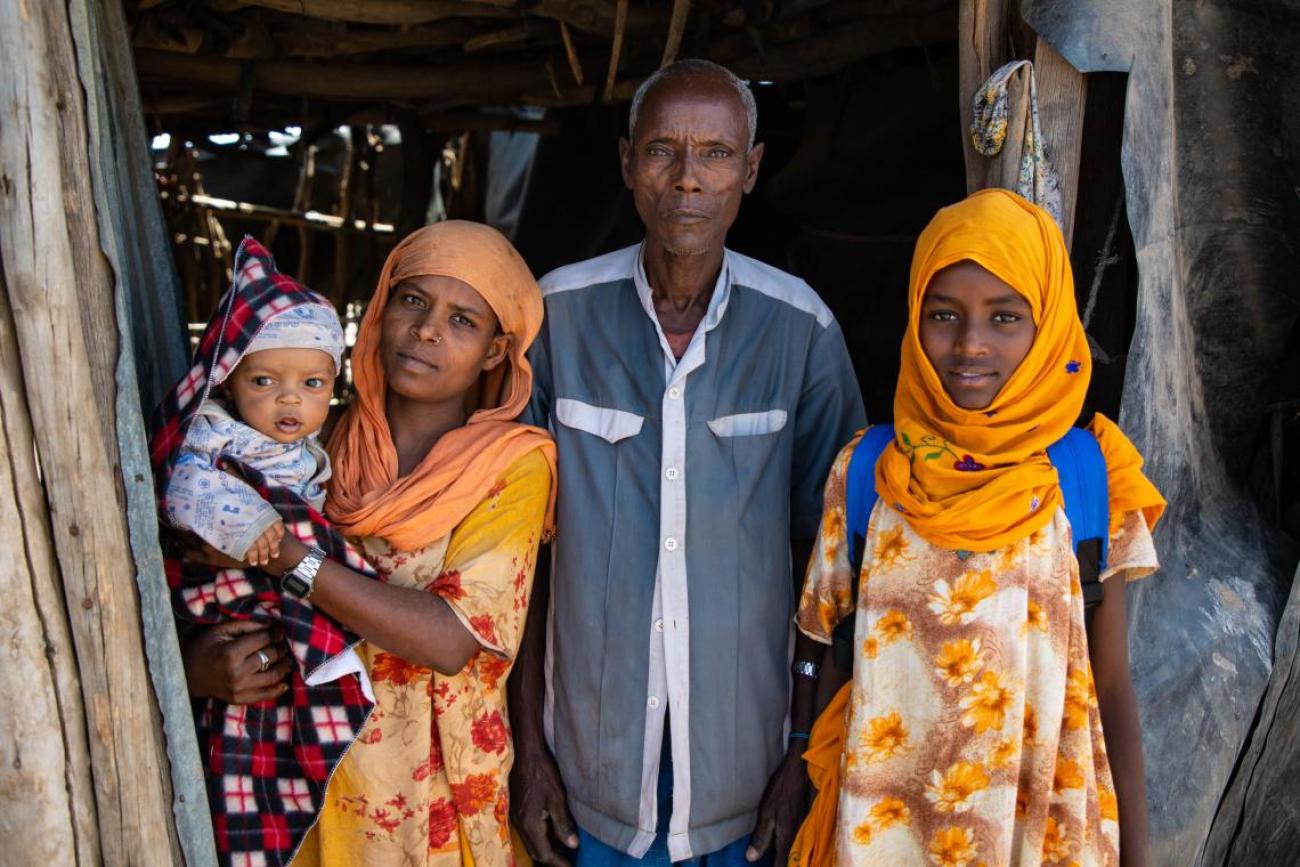Severe drought in decades pushed families in Ethiopia to the brink. More than 6.8 million people in drought-impacted areas need urgent humanitarian assistance. The impact of the drought is devastating, drying up water wells, killing livestock and crops. The Somali region of Ethiopia is one of the hardest hit. There is a significant lack of clean water, and the food security is deteriorating rapidly; leading to an increase in malnutrition cases. In recent visit to Afdher zone, we met some of the families in Burdhubo and Hargele Internaly Diplaced Persons (IDP) sites.
Meriam Hussein comforts her son Dheg Gameta in Burdhubo IDP site, Afdher zone of the Somali region. Dheg is seriously malnourished and sick. “The drought devastated us, most of us here have nothing to eat,” she says. Her husband Gameta Ahmed says that he only left with 10 goats, he lost a lot more than that number.
“What can I do? Only God can do miracles,” Gameta adds in despair.
A little further from where Dheg is laying, a new soul joins this world. Fatuma Abdullahi was born in disaster. Her mother, Durran Jaho is weak, and suffering from constant headaches and dizziness, a visible sign that she is anemic. Durran is breastfeeding her child, but she is not eating very well. “At night when it cold, I worry about my child. We are eating rice given to us [by the government]. But that is running out.”
Durran is not only worried about her newborn baby. Her first born, two-year old, Nurto Abdullahi, is severely malnourished and needs urgent treatment. Nurto and her family moved to the Burdhubo IDP site in Afdher, zone of the Somali region, hoping that they will get help. Many drought-affected people preferred Burdhubo because it is closer to the road.
Durran’s husband Abdulahi Mahidi had little stock of cattle as compared to other families, even before the drought. Sadly, he lost many of them and is unable to provide milk to his family. “I lost my cattle, one after the other. I worry about my children. This one [Nurto] is weak. I don’t know what will come next…”
Eshe Omer, a mother of two children left her little village of Anburo after her animals started to die. She walks for three hours to Hargele, joining other drought affected people. Eshe is five months pregnant with her third child. “The rain stopped a year ago. We were not able to find pasture for our animals. We can’t eat them or sell them. Things gets worse than we left. We don’t have anything to eat, and I feel sad that my children are also suffering,” says Eshe.
Eshe and her daughter Nura were screened and found to be malnourished. UNICEF, in drought affected areas of the Somali region, is closely working with the government and local partners. Mobile health and nutrition teams provide life-saving services moving from place to place. UNICEF also provides water, emergency education and protection services to children displaced by the drought.
Yet, the need is huge. We need urgent support, and we need it now!



